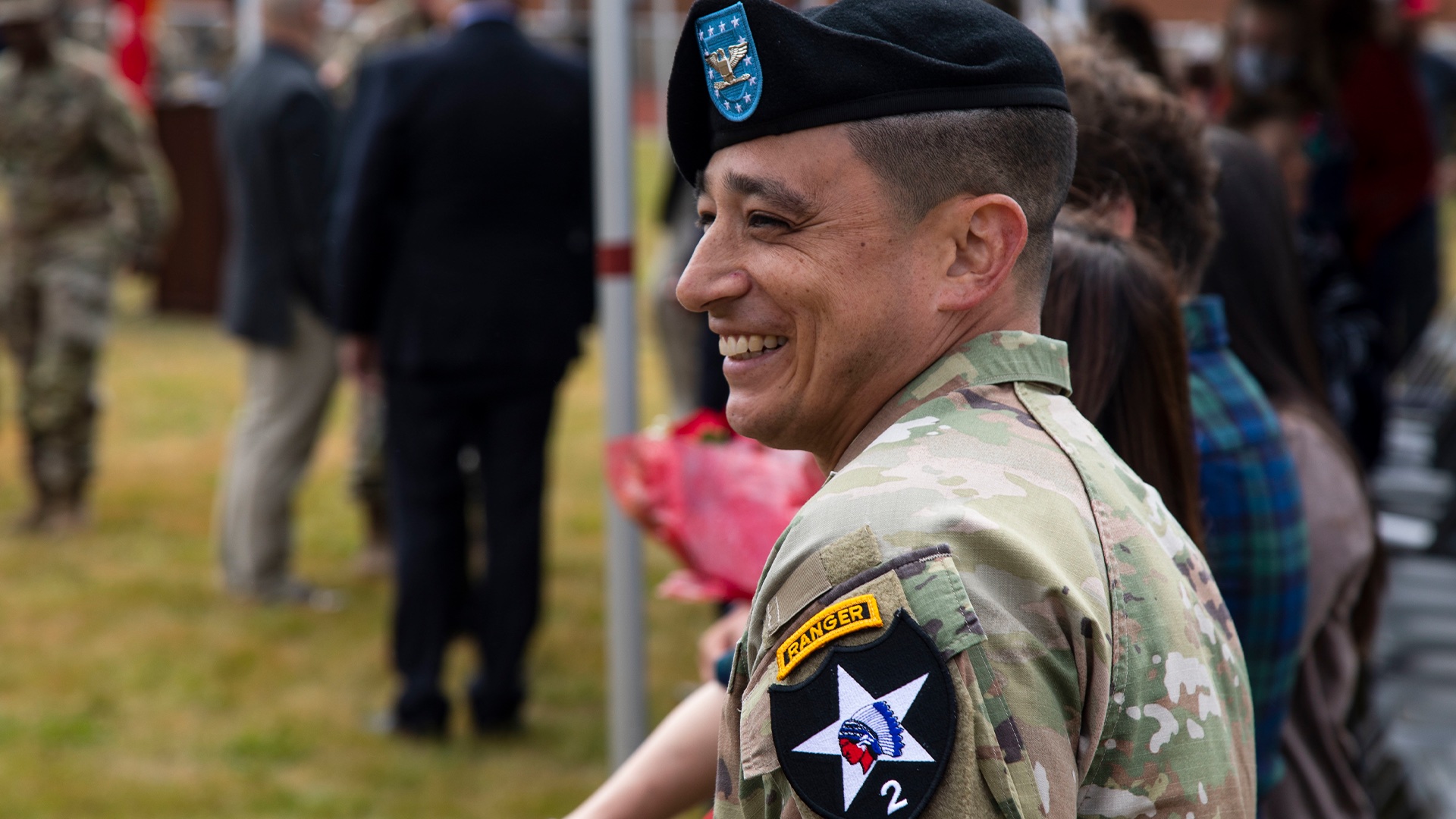

Army Col. Jonathan Chung has been fired as commander of the 5th Security Force Assistance Brigade after being suspended earlier this year, service officials have announced.
Army Maj. Gen. Donn Hill, head of Security Force Assistance Command, ultimately relieved Chung of command “due to a loss of confidence in Col. Chung’s leadership and is based on the results of an Army Regulation 15-6 investigation,” the command announced on Thursday.
The term “loss of confidence” is a euphemism used by the military services to avoid giving the exact reasons why an officer or senior enlisted leader has been fired. Army officials also announced that the investigation that led to Chung’s firing can be requested through the Freedom of Information Act, but that process is slow and can take months, if not longer.
Subscribe to Task & Purpose Today. Get the latest military news and culture in your inbox daily.
In an April email asking for support from his colleagues, Chung wrote that he was accused of being a counterproductive and toxic leader and that he was not facing any allegations of criminal, unethical, or immoral actions, according to Military.com.

Task & Purpose previously spoke to soldiers who served under Chung who described him as a tough leader who set high standards. Some felt that Chung forced his soldiers to show significant improvement in their leadership skills, while others felt that Chung was a toxic leader who was unnecessarily harsh on his subordinates.
Some soldiers who objected to Chung’s leadership style said that he made his subordinates listen to his podcast and answer questions afterward, and once during the making of a public affairs video of Chung’s unit, he made two soldiers go back to the Central Issue Facility because they had received tactical vests in an older camouflage pattern, explaining “their gear wasn’t ‘high speed enough.’”
However, former Army Sgt. Robert Swyers told Task & Purpose in a previous story that battalion and company commanders would use the high standards set by Chung to justify additional training beyond what Chung required.
Still, another soldier described Chung on Friday as a “bully” who often blamed his subordinates for problems over which they had no control in order to get them to try harder.
In one incident, Chung screamed at his staff because an Afghan detainee had not been interrogated yet, even though the man had only been in custody for roughly an hour, said the soldier, who spoke to Task & Purpose on condition of anonymity to avoid retaliation.
“We got to a point where we just realized that we are in a game that we were designed to lose,” the soldier said. “If I had to go work for that man again, I’d leave the Army. I would refuse to go work for him – refuse.”
Chung’s attorney Jeremy Snyder told Task & Purpose on Friday that he has not yet been provided a copy of the investigation’s findings.
“As far as we know, Col. Chung has not received any kind of reprimand or punishment of any sort,” said Snyder with the firm Military Law. “I’m not sure exactly what the basis is for his removal from command at this point. We don’t have that information.”

Snyder confirmed that the Army’s investigation looked into whether Chung was a counterproductive leader, which he described as “a pretty subjective standard.”
Chung received an outpouring of support after he was suspended in April, said Snyder, who submitted a rebuttal package to Army officials challenging the move that included more than 200 letters of support. Some of those letters came from people who reached out to Snyder asking how they could help Chung.
“We had more people come out from 5th SFAB in support of Col. Chung than the IOT [investigating officer team] even interviewed,” Snyder said. “So, we’re a little perplexed as to why the result is what it is. But all I can say is that Col. Chung has a massive amount of support throughout his career, including at the 2-2 [2nd Stryker Brigade Combat Team, 2nd Infantry Division] and 5th SFAB.”
Snyder said he has represented thousands of military clients throughout his career and none of them has received as much support as Chung. He added that he felt the number and diversity of people who sought to help Chung should have shown that the weight of the evidence in the case was in Chung’s favor.
“Obviously, someone disagreed, as people do,” Snyder said.
Chung is now expected to transition to civilian life, said Snyder, who did not know exactly when Chung is scheduled to retire from the Army.
“Col. Chung will make a smooth transition from this during his remaining time in the military,” Snyder said, “He is a natural leader, proven through his 65 months in combat and 100 months in command. He has served this country with selfless service and honor, and we have no doubt he will continue to lead and impact future generations whether in the Army or as a civilian leader in retirement.”
The latest on Task & Purpose
- Is Ukraine winning the war against Russia?
- Air Force sends F-22s to Middle East to deter aggressive Russian pilots
- Army secretary concerned ‘woke military’ criticism could hurt the service
- Fort Sill commander fired amid investigation
- Fort Polk is renamed Fort Johnso